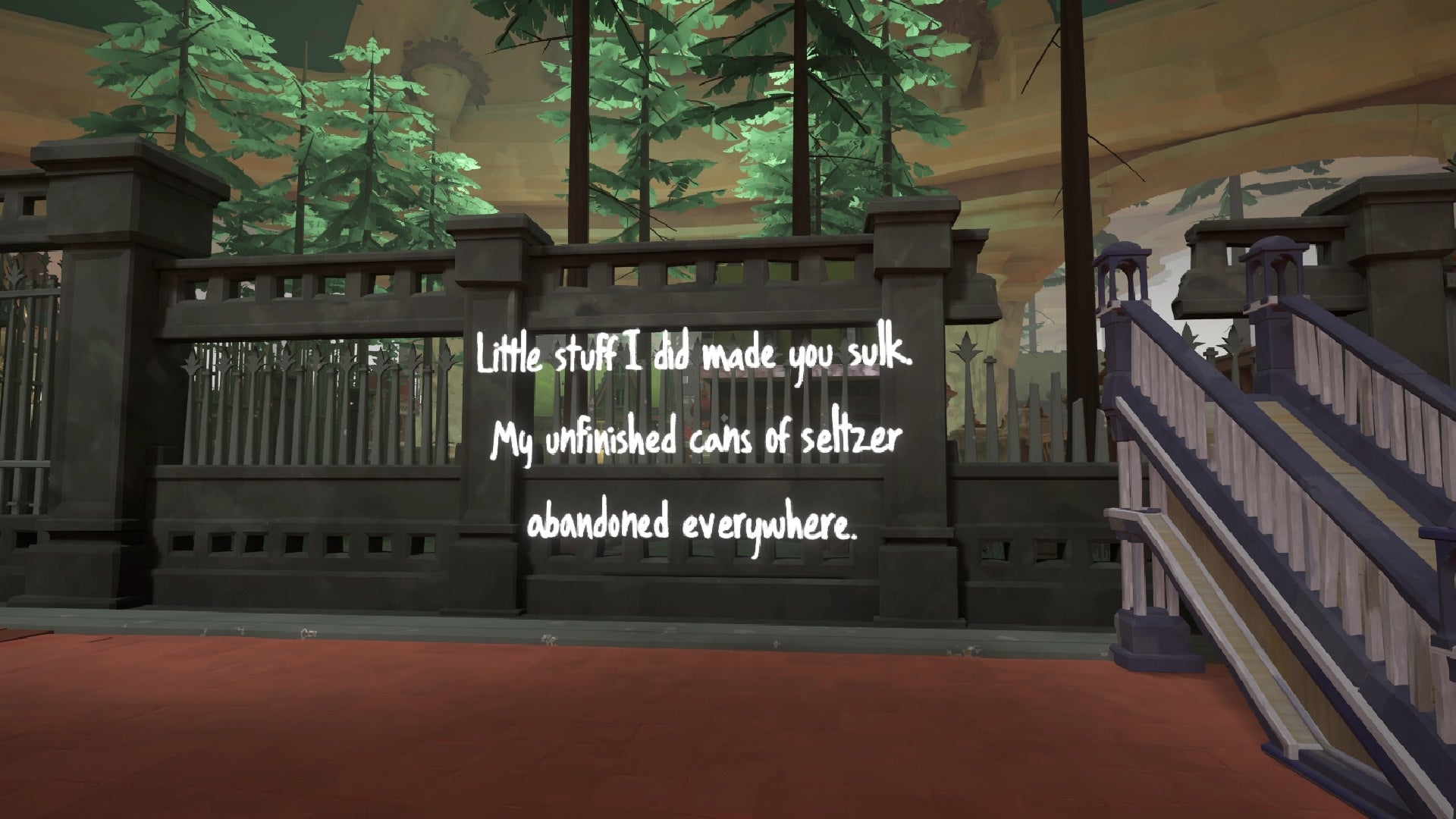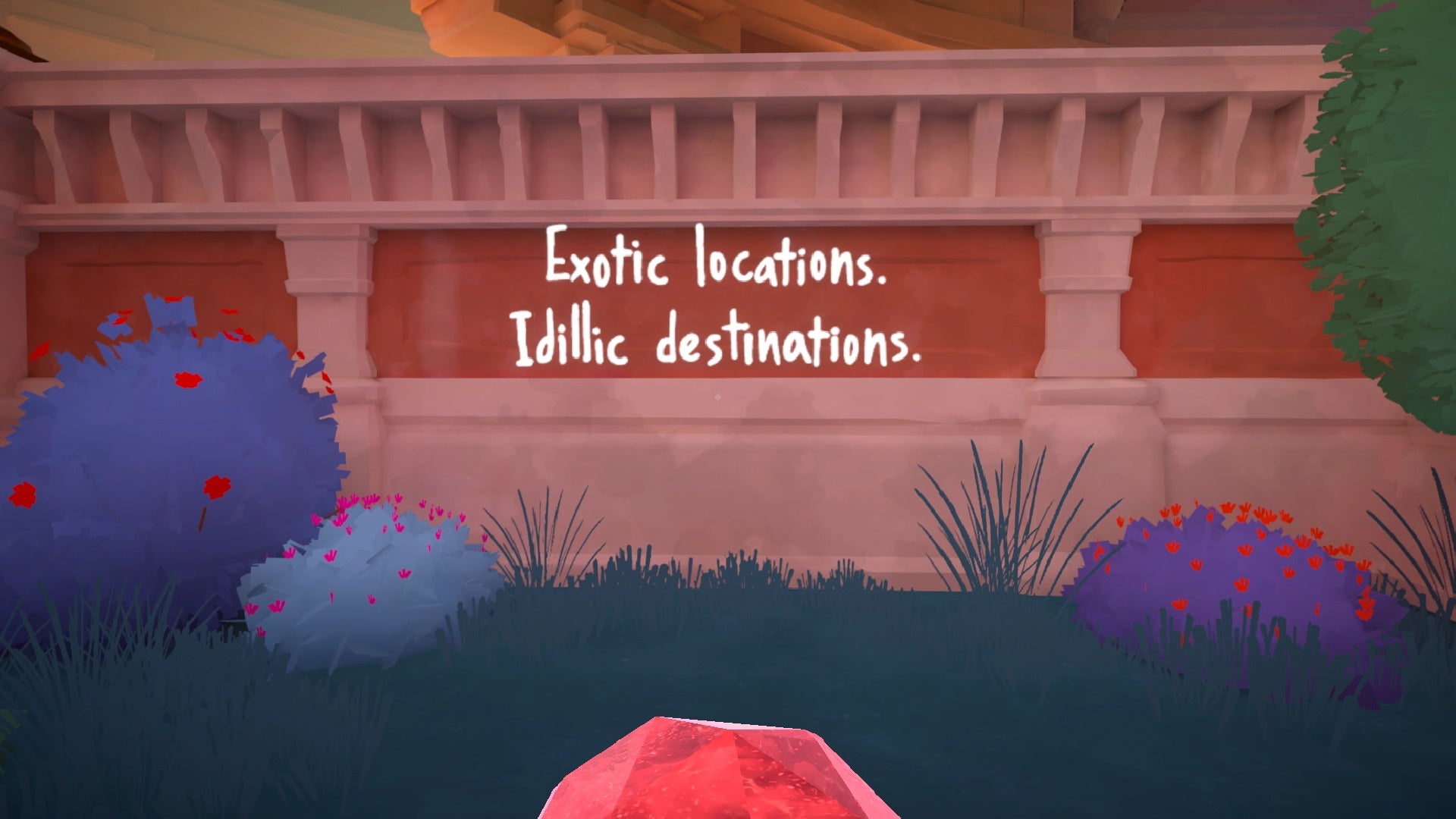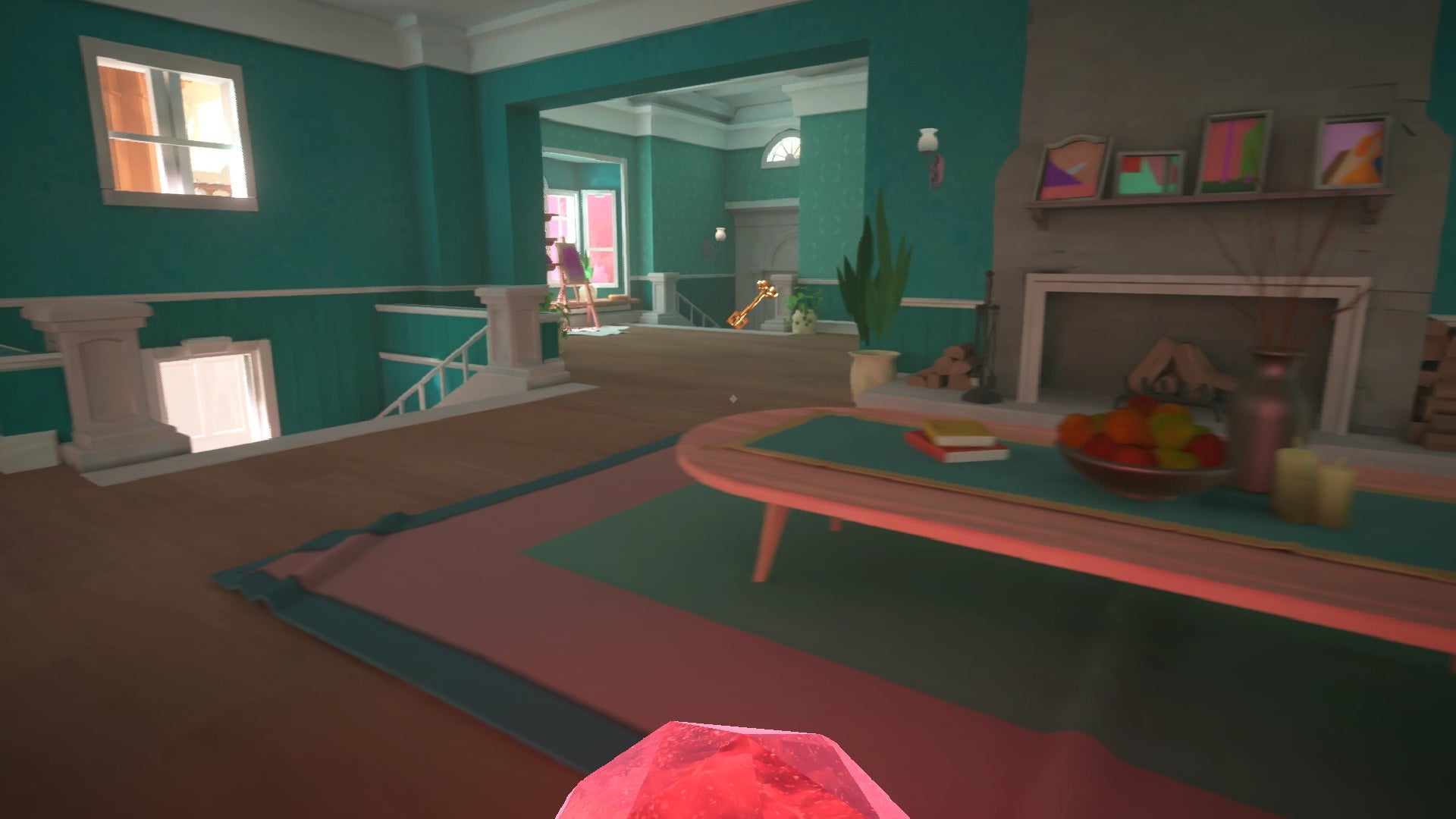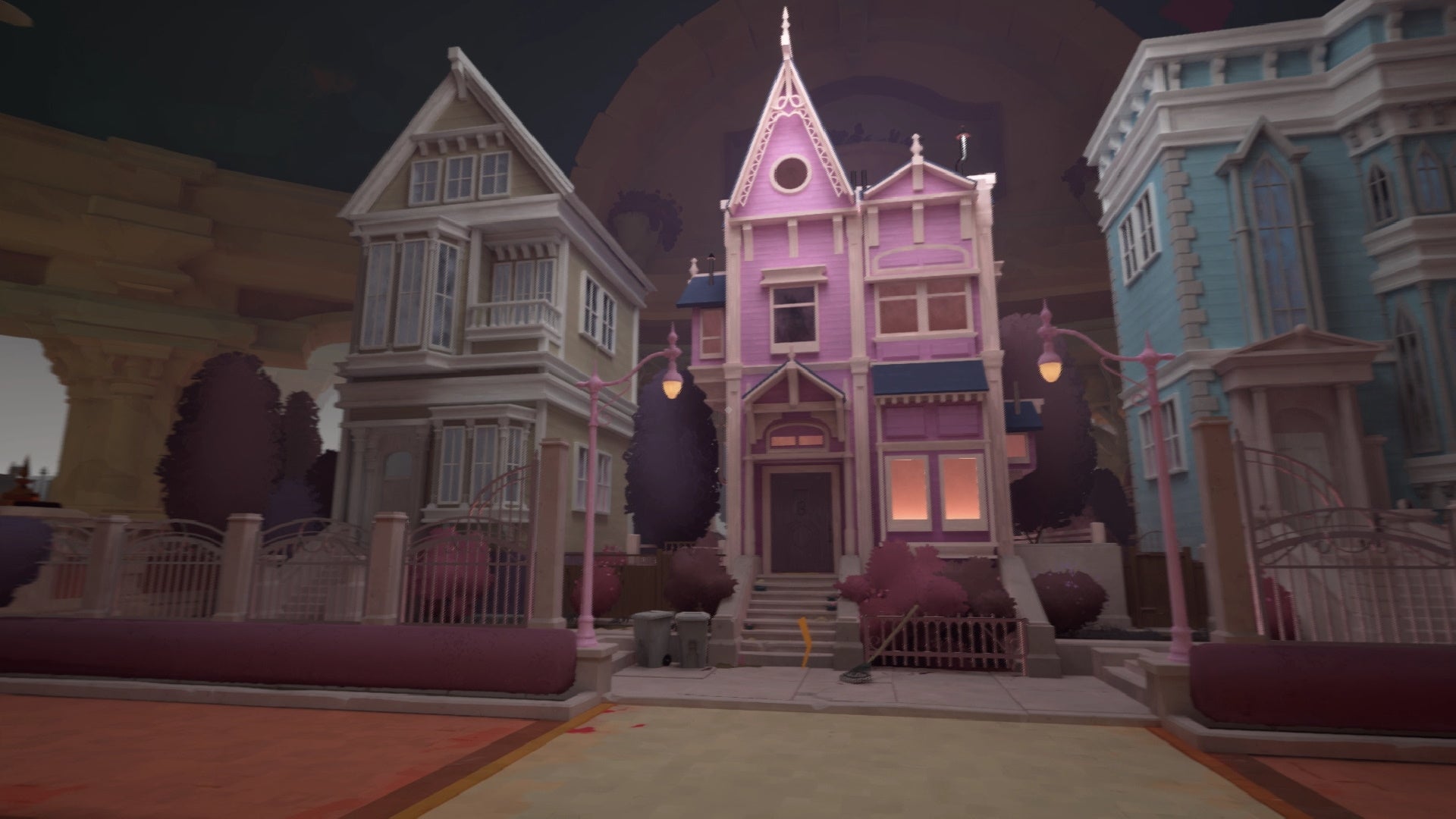This just about sums up Maquette, a first-person puzzle game where everything in the world is both simultaneously small, but also very big. And as you unfold it with the powers of your intellect, you are subjected to the story of Michael and Kenzie’s relationship. It’s one that starts off all rosy, but gradually deflates as time goes by. The feelings go from big, to small. I’d say my own lie somewhere in between at a solid medium. Maquette’s world is recursive, which is a fancy way of saying that things can be made small or big because you are looking at a model of the world that you are simultaneously standing in. And it is up to you to manipulate this ability, unpick this environment, and move forwards. At the very beginning of Maquette, you emerge into a square to discover your world in miniature. Drop things into this model, and they’ll come crashing down from the skies in massive form. Conversely, it’ll appear on the miniature world as a much smaller object, so if you pick up something you’ve just popped into this Lego-scale domain, you’ll then have a teeny-weeny version of it. I felt a deep sense of accomplishment when I turned a regular sized key into a gigantic one, by plopping it into the miniature world. A quick rotate on the model and bam! I’d made myself a makeshift bridge. My brain cells were in ecstasy. And yet, my face was lined with agony. Why? Because I knew I had to sit through more of Michael and Kenzie’s love story, and it is not as compelling as the human drama of Married At First Sight: Australia. When you progress in Maquette, you’re treated to either a cutscene, or the couples’ dialogue appearing on the walls. They say cringey stuff like: “I nudged you with my flat white as we giggled, and some of it spilled on your Vans, but you just kicked me in the shins playfully. It actually hurt quite a lot, but the sting ebbed away when I saw you smile that smile of yours. Oh I loved your smiley smile.” The voice acting is strong, though, and I get that’s going for this deep emotional arc about how relationships can change, people need to compromise, and the like. I mean, I’ve seen it all in MAFS. But in the show it feels somewhat real (even though it breaks my heart knowing that much of it is staged), while in Maquette it’s pure romcom guff. It’s like the devs tried to nail down real and mundane so hard, they somehow hammered through the non-fiction wall into hyper-fictitious. Everything is so idyllic, and predictable, and I am convinced no human has ever had a relationship like Michael and Kenzie. If you can get past the cheese, then Maquette’s puzzling isn’t half bad. It’ll give you those “aha!” moments, all of which relate to making something big, then small - or vice versa. You need to pay close attention to details in your environment, like whether an orb may pass through that space, or if you could use something massive to clamber up to new heights. There’s a bit of repetition early on, with an endless array of keys and orbs to fiddle around with, but as time goes by things do get a bit more creative. I mean, there’s still a fair amount of orbs and keys, but the ways in which you use them get a touch more interesting. You might have to think about the angle of your placements a bit more, or whether that glow up there might mean something. But, the game doesn’t explicitly tell you anything, so it can be very frustrating if you’re unsure what the next step entails. There were many, many times when I was bouncing between small-land and big-land, but had placed things in the wrong spot, or shrunk something I’d not meant to, or just plain didn’t know where to go next. Puzzle veterans will likely be fine, but those looking for a chill time may struggle with the lack of direction. I do think Maquette’s whole recursive schtick eventually gets tiresome. Right towards the end, there are moments which focus less on puzzling, and more on the storytelling side of things. I had to listen to some more cringe, but the times when I wasn’t puzzling - like when I walked along a street that gradually materialised before me - came to feel like moments of respite. I’d had enough of the big keys. And despite my eye-rolls at Maquette’s story, the way its world responds to the unravelling of Michael and Kenzie’s relationship is pretty impressive. As things break down between them, the woozy castles and their colourful exteriors give way to bleaker settings. There are thick trees, houses locked behind towering gates, and a darker, greyer ambience overall. And as you shift and manipulate your surroundings, you feel physically embedded in a relationship that’s literally crumbling before your eyes. But by the end, Maquette had thoroughly rinsed both its gimmick and its story. Much like Michael and Kenzie’s relationship, it started off good, but wore me down as time went on. A far cry from Season 6 of Married At First Sight: Australia.



